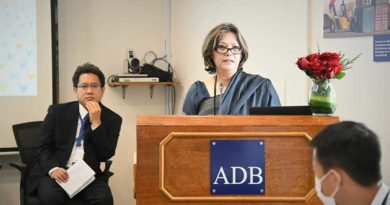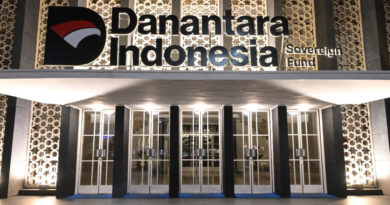CYBER CRIMES | Philippines disinformation campaigns: ‘I know that what I’m doing is wrong’ -Paid trolls
A documentary series exposes paid trolls and long-term disinformation campaigns in the Philippines (PHOTO: Getty Images)
.
.

Online paid trolls and disinformation campaigns are utilized all across the political spectrum in the Philippines, as part of a long-term effort to mislead people, according to a recent episode of a documentary series.
Paid trolls have been hired to spread disinformation as early as 2016, according to “Internet Trolls: The Unseen Force Behind Philippines’ Politics”, which aired on August 6 as part of CNA Insider’s Undercover Asia documentary series.
The episode also cited a 2017 press conference where former president Rodrigo Duterte admitted to hiring trolls during his 2016 presidential campaign.
“Everyone seems to be in on it. They feel that they need to be part of this political game,” said Professor Jason Cabanes of De La Salle University.
An October 2021 Pulse Asia survey even showed that almost half of Filipinos rely on social media for news. This heavy social media usage is driven by several factors, said Prof Cabanes in the episode.
The Philippines has a lack of public access spaces like parks, so the alternative is to socialize online. The country’s large number of overseas Filipino workers (OFW) also leads to high social media usage to maintain social connections.
In addition, lockdowns imposed due to the pandemic have made it harder to meet face to face to have conversations about politics. “It’s shifted a lot to online, so that’s really exacerbated this very toxic way of talking to each other,” said Prof Cabanes.
Presidential campaign
In the recently released Digital News Report 2022, Yvonne T. Chua of the University of the Philippines also noted that the country was “awash with disinformation” in the lead-up to the elections. Such disinformation mostly lionized President Ferdinand “Bongbong” Marcos Jr. and demonized then Vice President Leni Robredo.
The report also noted that the Philippines is one of three countries where political misinformation (64 percent) is more widely seen than unproven claims about the coronavirus (61 percent).
Ahead of the May election, Facebook took down more than 400 malicious accounts. Rappler journalist Don Kevin Hapal noted in “Internet Trolls” that most of the pro-Marcos accounts were created around October 2021, which was “extremely suspicious”.
“Whenever we publish stories that expose disinformation or networks of disinformation, obviously those networks would fight back,” added Hapal, who has received harassing messages and threats and had his photo posted online.
‘I know that what I’m doing is wrong’
According to humanitarian NGO Mercy Corps, disinformation campaigns have three components.
- Develop core narratives
- Onboard influencers and fake account operators
- Disseminate and amplify on social media
The chief architects of disinformation campaigns mostly work in advertising and public relations, with some former journalists as well. There is artificial boosting of followers and content, while politicians get hired guns to buy accounts and pages and then change their nature.
Digital influencers are roped in to amplify disinformation as well, while paid trolls buy multiple SIM cards and register multiple social media accounts with different names.
“It’s an easy job as all you need is a SIM card,” said “Sharon”, a paid troll in her 30s who lives in a rural area outside Manila and is her family’s main breadwinner. She uses fake profiles to infiltrate social media groups and is set a target of at least 150 shares a day. She is also encouraged to join groups that have more than 3,000 members
“I reply sarcastically, so they get more emotional when they respond.”
“Brandon”, a social media influencer, freely admitted, “I know that what I’m doing is wrong and I accept that. But during this pandemic where everyone is in a time of need, I would choose to support my family knowing that I’m not the only one doing this.
He added, “Too many people are doing this. Too many.”
A lucrative profession
The Philippines has one of the lowest wages in the world, according to data from the International Labor Organization and Philippine Statistics Authority.
The average monthly salary stands at US$204. By comparison, a troll can potentially earn up to US$1,350.
“Internet trolls” also cited a chief architect of a disinformation campaign, speaking anonymously, who claimed that a national client for parallel operations with moderate deliverables can pay P800,000 to P1 million a month
“They need us more than we need them,” said the individual.
Struggling to fight back
Fact-checking collaboratives such as TsekPH, formed during the 2019 midterm elections and relaunched with 34 partners, and FactsFirstPH, a new initiative with 18 fact-checking partners, have been hard at work.
But Commission on Elections (COMELEC) spokesperson James Jimenez noted, “There have been no legal actions taken, simply because there is no law that penalizes this directly, especially not in relation to elections”
There is also an easy way to identify trolls, as a single person can have as many as 10 separate accounts, with 10 fully formed identities
In a bid to clamp down on malicious accounts, social media platforms typically track Internet Protocol (IP) addresses where accounts are created. If the IP address is the same and there is a new contact number with the same address, that account is automatically disabled
Prof Cabanes noted that the platforms look for “coordinated inauthentic behavior”. However, the work is distributed to different people who don’t necessarily know that they are working on the same project. The volume of accounts and comments thus mimics organic behavior.
The nature of social media – where tailored info is served up based on the individual’s preferences, and machine learning then serves up targeted info to confirm and reinforce that information – also does not help.
Data analyst Cleve Arguelles said, “You don’t realize that this algorithm favors certain content that may not necessarily be true, that may not necessarily be the complete picture.”
This creates an “echo chamber in which you think all the things that you are seeing is actually a reflection of reality, but… it’s only a partial reflection of reality.”

Ads by: Memento Maxima Digital Marketing
@[email protected]
SPACE RESERVE FOR ADVERTISEMENT











